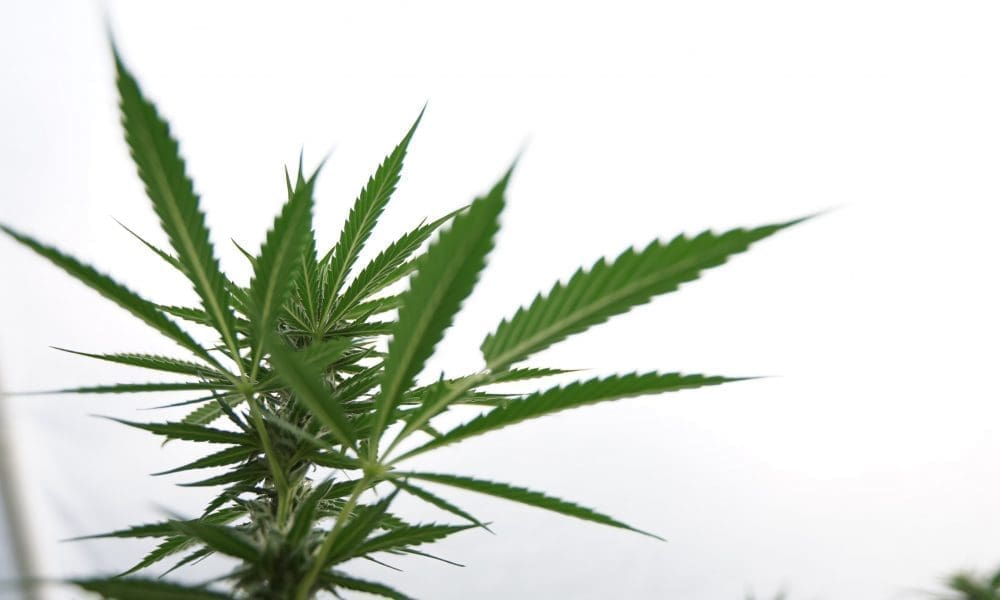Newly published research suggests that “Black-owned” labels on cannabis products can help increase brand engagement from white consumers, though they generally fail to earn extra attention from Black consumers.
The study, published this month in the Journal of Consumer Research, says the findings reflect so-called “expertise stereotypes” among different groups of respondents.
“Black ownership signals credibility to out-group consumers, but stigma may suppress in-group identification,” the study’s lead author, Chethana Achar, said in a statement about the research. “The findings raise critical questions about whether equity policies alone are enough to ensure market success for Black entrepreneurs in the drugs industry.”
Achar, a professor at Northwestern University’s Kellogg School of Management, co-authored the paper with a University of Washington business professor and the founder of a California-based marketing consultancy.
The research consisted of four separate sub-studies. Those included surveying Black professionals from the drug industry about their expectations around “Black-owned” labels, measuring peoples’ expertise stereotypes about Black and women entrepreneurs, comparing responses to “Black-owned” labels on cannabis as opposed to candy and testing how “Black-owned” and “Woman-owned” labels affected engagements with psychedelics advertisements.
Among the findings, the team found that “‘Black-owned’ labeling increased Black participants’ intentions to consume candy, but not cannabis,” adding that “the pattern reversed for White participants such that ‘Black-owned’ labeling increased their intentions only for cannabis.”
“Whereas out-group members’ response is consistent with expertise stereotypes,” the report says, “in-group members’ support does not extend to the stigmatized category.”
Results showed that among both Black and white participants, Black entrepreneurs were perceived as “stereotypical experts” on cannabis, according to a preprint of the report provided to Marijuana Moment. For psychedelics, “Black participants indicated no expertise stereotypes for Black entrepreneurs, whereas White participants perceived that Black entrepreneurs were experts.”
Stereotypes, “also do not systematically vary by participants’ gender, support for drug legalization, or political ideology,” it continues. “These findings indicate that consumers perceive domain-specific expertise stereotypes and that such stereotypes are mostly similar across consumers.”
The research also found, in separate investigation around psychedelics advertisements on Facebook, that a “Black-owned” label on advertisements led to a 21 percent increase in clickthrough rates compared to an ad without the label.
Including a “Woman-owned” label, however, reduced clickthrough rates by 15 percent.
“These findings advance the discourse on ownership labeling and provide insight into nuanced consumer responses in this category,” the study says.
Authors wrote in the preprint that a possible concern “with relatively uncommon ad treatments, such as an ‘x-owned’ label, is that responses may be driven by the novelty of ownership labeling.”
“However,” they added, “the negative effect of the Woman-owned label suggests that novelty alone is unlikely to explain the positive effect observed for Black-owned labeling.”
The research team said the stereotypes revealed likely has benefits as well as drawbacks:
“Our view is that recognizing the dual nature of stereotypes—both their problematic aspects and their potential utility in specific contexts—provides a more comprehensive understanding of their impact. While ‘Black-owned’ labeling on drugs can enhance consumer perceptions of product quality by leveraging expertise stereotypes, this phenomenon also carries significant risks. The reinforcement of stereotypes linking Black people to drugs may inadvertently perpetuate harmful associations, further entrenching the stigmatizing views.”
Further study, the report says, should “critically explore these implications by investigating how expertise stereotypes in stigmatized domains can have adverse effects.”
The study also acknowledges that it doesn’t take into account how legalization of drugs “may lead to development of positive associations with drugs over time.”
“Documentation of shifting attitudes towards drugs are beyond the scope of this research; however, it is important to note that change in societal attitudes indeed might change the underlying mechanisms documented here,” it says. “For example, if being associated with cannabis were seen as culture-forward, rather than stigmatizing, a positive effect of ‘Black-owned’ labeling may be expected among Black participants.”
As for other recent findings into consumer behavior, a survey ahead of the 4/20 weekend found that three in four cannabis consumers support non-marijuana companies promoting their brands in a way that aligns with the festivities.
While there are typically deals and marketing stunts within the state-legal cannabis industry around 4/20, a growing number of companies that aren’t directly related to marijuana—from dog toy makers to fast food chains—have also seized the opportunity to play into cannabis culture.
A separate survey, released earlier this month, found that half of U.S. marijuana consumers say they expect to use more cannabis under the Trump administration than they have before.
The findings seem to comport with another recent poll that showed cannabis consumers self-reporting higher levels of stress since Trump was inaugurated compared to the overall population.
Relatedly, another poll from February found that nearly 7 in 10 American marijuana consumers say they plan to spend either more on cannabis or about the same amount in 2025 compared to last year.
NuggMD also recently released a survey that found two out of three marijuana consumers say they’ve had to make the decision to spend less money on cannabis because of broader inflation in the economy.
Meanwhile, another poll from January found that more than half of marijuana consumers say they drink less alcohol, or none at all, after using cannabis.
Photo courtesy of Chris Wallis // Side Pocket Images.
Newly published research suggests that “Black-owned” labels on cannabis products can help increase brand engagement from white consumers, though they generally fail to earn extra attention from Black consumers. The study, published this month in the Journal of Consumer Research, says the findings reflect so-called “expertise stereotypes” among different groups of respondents. “Black ownership signals Read More


